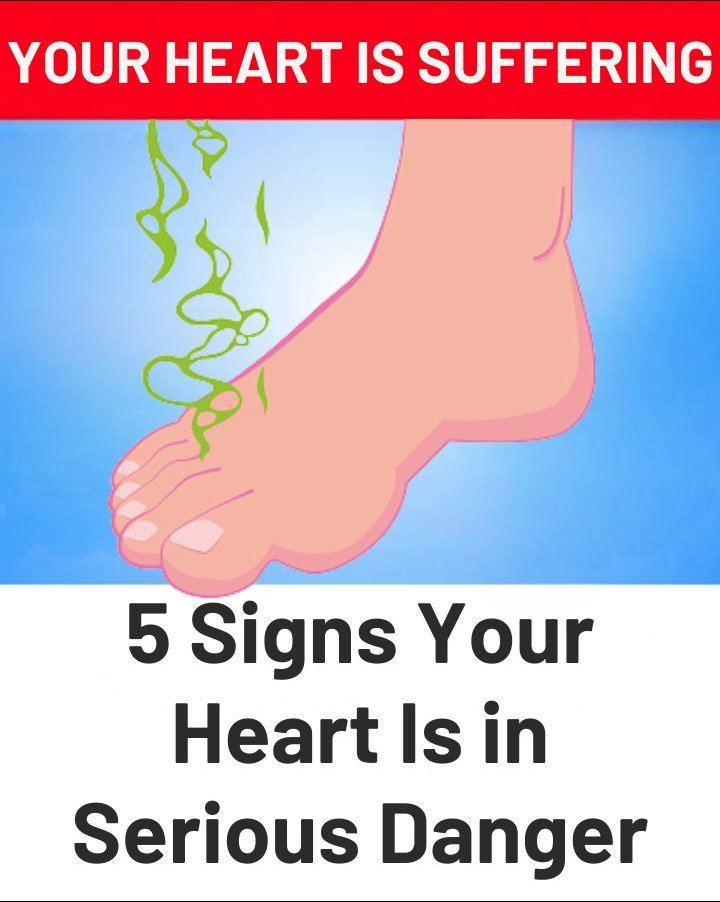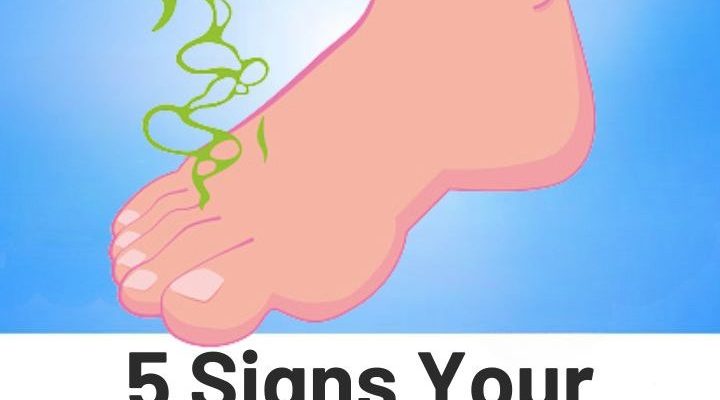The human heart is a remarkable organ, tirelessly pumping blood and oxygen throughout the body to keep us alive and healthy. Despite its incredible resilience, the heart is not invincible. Cardiovascular diseases remain one of the leading causes of death worldwide, often due to warning signs that go unnoticed or are ignored until it is too late. Understanding and recognizing these warning signs can be the key to preventing severe heart conditions and potentially saving your life.
Many people assume that heart disease only affects older adults or those with an unhealthy lifestyle, but the reality is that heart problems can develop in anyone, regardless of age or fitness level. Your body provides warning signals when something is wrong, and paying attention to these signs is crucial. Here are five alarming signs that your heart may be in serious danger and that you should seek medical attention immediately.
1. Persistent Chest Pain or Discomfort
One of the most well-known and significant warning signs of heart disease is chest pain or discomfort. However, many people fail to recognize that this pain does not always manifest as the classic “crushing” sensation depicted in movies. Chest discomfort related to heart disease can feel like pressure, tightness, burning, or even mild pain that comes and goes.
Angina, a type of chest pain caused by reduced blood flow to the heart, is a common symptom of coronary artery disease (CAD). This pain may occur during physical exertion or emotional stress and typically goes away with rest. However, if you experience sudden, severe, or prolonged chest pain—especially if it radiates to the arm, jaw, or back—it could indicate a heart attack. Seeking immediate medical attention in such cases can mean the difference between life and death.
2. Shortness of Breath and Fatigue
Feeling unusually tired or out of breath, even when engaging in routine activities, can be an early warning sign of heart disease. When the heart struggles to pump blood efficiently, the body does not receive enough oxygen, leading to fatigue and difficulty breathing.
Shortness of breath can occur with minimal exertion or while lying down. Some individuals experience sudden episodes of breathlessness during the night, forcing them to sit up for relief. These symptoms may indicate congestive heart failure (CHF), a condition in which the heart is unable to pump blood effectively, leading to fluid buildup in the lungs and other parts of the body.
Chronic fatigue is another symptom often overlooked. If you find yourself feeling exhausted despite getting enough rest, and there is no other obvious cause, it might be time to check your heart health.
3. Irregular Heartbeat or Palpitations
A healthy heart beats at a steady rhythm, typically between 60 to 100 beats per minute. Occasional irregularities, such as skipping a beat or a brief fluttering sensation, are usually harmless. However, frequent palpitations, a racing heartbeat (tachycardia), or a slow heart rate (bradycardia) can indicate an underlying heart problem.
Arrhythmias, or irregular heart rhythms, can be caused by various factors, including heart disease, high blood pressure, electrolyte imbalances, and stress. Some arrhythmias, like atrial fibrillation (AFib), significantly increase the risk of stroke and other complications. If you frequently experience an irregular heartbeat, dizziness, or fainting, consult a doctor to rule out serious conditions.
4. Swelling in the Legs, Feet, and Ankles
Swelling, medically known as edema, occurs when excess fluid builds up in the body’s tissues. While mild swelling in the legs or feet may be harmless, persistent or severe swelling can be a sign of heart failure.
When the heart is unable to pump blood efficiently, blood can back up in the veins, causing fluid to leak into surrounding tissues. This results in swelling, particularly in the lower extremities. Edema can also occur in the abdomen and lungs, leading to additional symptoms like weight gain and difficulty breathing.
If you notice persistent swelling, especially if accompanied by shortness of breath or fatigue, seek medical evaluation. Early diagnosis and treatment can help prevent further complications and improve your heart function.
5. Frequent Dizziness or Fainting Spells
Feeling dizzy or fainting can be alarming and may indicate an underlying heart issue. While occasional dizziness may result from dehydration or a sudden drop in blood pressure, frequent or severe episodes should not be ignored.
Dizziness can occur when the heart is not supplying enough blood to the brain, leading to lightheadedness, confusion, or even loss of consciousness. Conditions such as low blood pressure (hypotension), arrhythmias, and heart valve diseases can contribute to these symptoms. If you experience frequent dizziness, especially when standing up or exerting yourself, it is crucial to get evaluated by a healthcare professional.
Preventing Heart Disease: What You Can Do
Recognizing the warning signs of heart disease is vital, but prevention is always the best approach. Here are some steps you can take to maintain a healthy heart and reduce your risk of cardiovascular disease:
- Adopt a Heart-Healthy Diet: Eating a balanced diet rich in fruits, vegetables, whole grains, and lean proteins can help lower cholesterol, blood pressure, and inflammation.
- Exercise Regularly: Engaging in at least 150 minutes of moderate aerobic activity per week can strengthen your heart and improve circulation.
- Quit Smoking: Smoking is a significant risk factor for heart disease. Quitting smoking can dramatically reduce your risk of heart attacks and stroke.
- Manage Stress: Chronic stress and anxiety can contribute to high blood pressure and heart disease. Practicing relaxation techniques, such as meditation and deep breathing, can help.
- Monitor Blood Pressure and Cholesterol: Regular health check-ups can help detect risk factors early, allowing for timely intervention.
- Maintain a Healthy Weight: Excess weight puts additional strain on the heart, increasing the risk of hypertension, diabetes, and other conditions.
- Stay Hydrated and Get Enough Sleep: Poor hydration and lack of sleep can affect heart function and overall well-being.
Conclusion
Your heart works tirelessly to keep you alive, but it needs your help to stay healthy. Recognizing the early warning signs of heart disease and taking proactive steps to improve heart health can significantly reduce your risk of severe complications. If you experience any of the five alarming signs mentioned above, do not ignore them. Seeking medical attention early can make a life-saving difference.
Heart disease does not develop overnight. It is the result of years of lifestyle choices, genetic factors, and underlying health conditions. By prioritizing heart health and making informed decisions, you can lead a longer, healthier life. Remember, your heart is at the core of your well-being—treat it with the care and attention it deserves.


